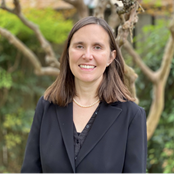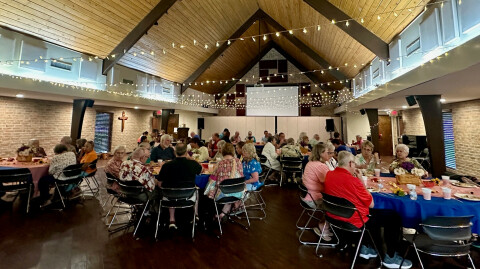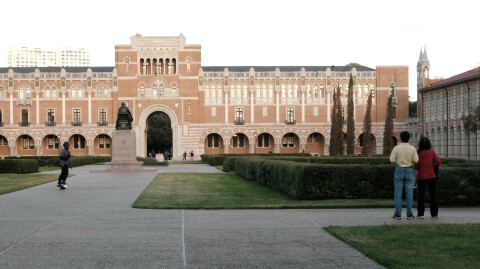When I arrived at Saint Dunstan's, one of the first ministries that stood out to me was the pastoral care team. I remember the day clearly; it was my second day officially in the office: Fr. Roman and I needed to make a pastoral care visit. We departed with our pre-assembled Eucharistic Kit (thanks to Dede and the Lay Eucharistic ministers). When we arrived at the home of two very kind parishioners, they sang the praises of the pastoral care team who had already arranged for food, called them, and visited. On the way out of the home, we were greeted by a member of the team, delicious dinner in hand. Fr. Roman told me that this happens to him frequently; our flock cares for each other. We later met with the team: three highly trained leaders who coordinate all of the programs in the church.
I am going to be completely honest with you: this is a clergy person’s dream; or at least it is my dream. The parish is able to coordinate the details of ministry such as collecting prayer requests, sending out emails about the public prayer requests, visiting parishioners, acting as and coordinating visits, and so much more. This means we, as a church, are living into the mission of the Episcopal church. The Catechism of the Book of Common Prayer lists lay people, those not ordained, as ministers the book tells us that lay people are to use gifts to carry out Christ’s mission in the world.1
So, now, I hope your interest is piqued about exactly what our pastoral care ministries entail. The leadership team meets once a week with Fr. Roman and myself.
First, let me say that the leadership is a highly confidential group. Any information shared with them goes directly to the rector. The group of three highly trained leaders have superb boundaries. They take the information and share it with Fr. Roman so he can administer Sacraments (such as communion or Sacrament of the sick2) as needed. This is particularly helpful at the time of death, as the prayers said invite the soul into a holy place. It is the last earthly moment for Reconciling Christ and this person's soul and is a time of true peace.3
Second, our Pastoral Care team prays. They collect prayer requests through email and alink on the church website. If the requests need to be confidential, such as information from the Daughters of the King, that information is shared solely with Fr. Roman. Prayers that are less confidential, are shared in a nightly prayer chain email. Healing Prayer is offered during every worship service in the chapel.
Third, our pastoral care team includes Stephen Ministers. These ministers listen closely to people in a one-one setting, while maintaining appropriate Safeguarding God’s People guidelines. The person who uses a Stephen minister is kept confidential; even Fr. Roman and I do not know all of the people who use Stephen ministry. It is a safe space for sharing. Similarly, the Shepherding ministries meet with parishioners who cannot come to church regularly. This ministry is less formal than Stephen Ministers. Our Lay Eucharistic ministers bring communion to those who are unable to come to church. This is a particularly important ministry, especially in the time of COVID-19 when so many people must self-isolate for health reasons.
Our Petal Pushers bring pure joy each week by dropping off flower arrangements made out of our altar flowers. These gorgeous flowers bring joy to someone who is unable to frequently leave their home, is having surgery, or is new to the parish. In fact, I received
beautiful flowers when I began my ministry.
The feed my flock ministry gives meals to those under stress. I can personally tell you that these meals feed the soul as well as the stomach. The team brought delicious meals for our family during a particularly busy week.
It is all of these ministries that help us serve each other. Please know if you have any pastoral needs the pastoral care team and the clergy are here to support you. We will keep you in our prayers and keep your needs confidential.
1 For more information about this, and exact wording, see The Book of Common Prayer. (1979). New York: Church Publishing. p.855
2 Sacrament of the Sick, Holy Unction, and Last Rites are under the same category. In the Episcopal Church, we have special prayers for the time of death that are given at the time of death. We call this sacramental rite Holy Unction. Please see The Book of Common Prayer p.861
3 See Ministration at the Time of Death in The Book of Common Prayer pp.861-867.





